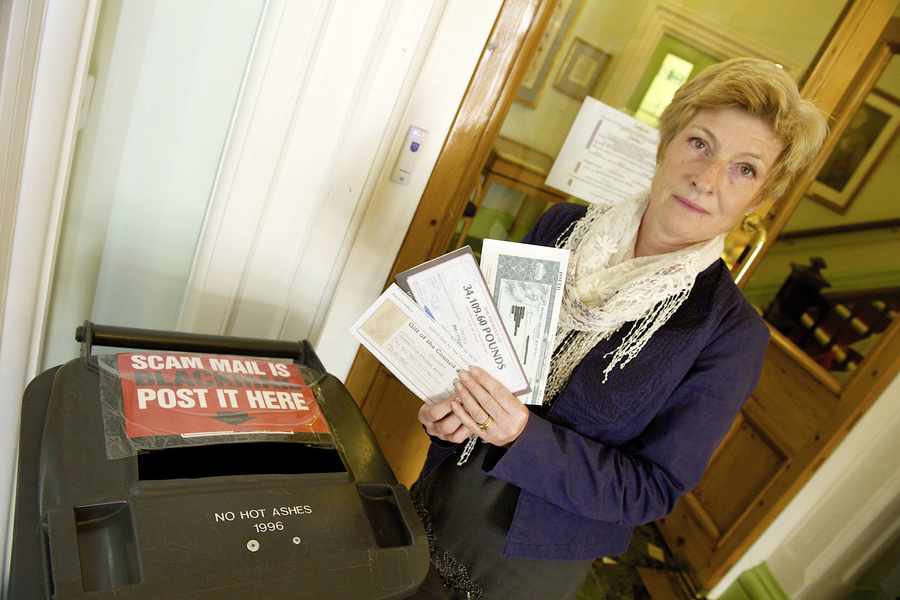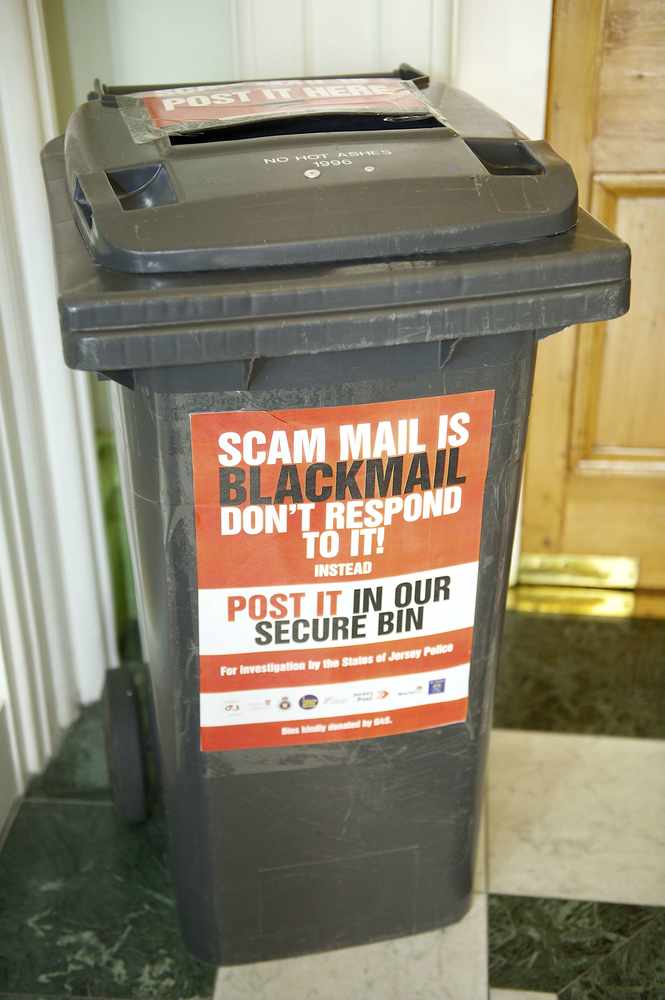The Jersey Fraud Prevention Forum is about to launch a States police-hosted email address to which potentially damaging email traffic can be forwarded.
Detective Chief Inspector Lee Turner said that the necessary security checks were now being put in place in advance of the new Scams 500 site, which will be monitored by the Joint Financial Crimes Unit.
Earlier this year the forum launched a similar initiative for scam letters, which enables recipients to put the mail back in the post marked PO Box 500 so that it can be redirected to the police.
Speaking at a seminar on financial enforcement this week, Det Con Insp Turner said there were also plans to issue clear guidelines about how members of the public could arrange to have their telephone calls filtered or blocked. The forum will also issue further information about safer internet use.
He said that the non-financial costs for victims of such scams were often higher than the loss of money, even though it was sometimes not regarded as seriously as other crimes such as physical assault. Older people were more likely to be targeted, he said, perhaps because they were often isolated and lonely.
‘The elderly often do not know what to do with the scam mail, which Jersey Post is legally obliged to deliver,’ he said. ‘They are afraid to dispose of it, especially letters about clairvoyance, or mail which contain threats.

‘There is a massive amount of work to do to prevent scams sent out by people who are driven by greed, hiding behind screens or phones many miles away.’
During the event organised by the Jersey Financial Services Commission, video interviews were shown of
Islanders who had become victims of fraud, including Cynthia Binet, who lost thousands of pounds to a fraudster who had previously
been a trusted friend of the family.
Another example was shown of a couple who had been duped by a phone call claiming that their credit card was being used to buy a gold watch. If it had not been for their bank manager, whom they knew personally, they would have transferred the entire contents of their account to the fraudsters.
The commission’s director of enforcement, Barry Faudemer, said that the reason why banks and finance firms were now asked to check people’s identities so carefully was in order to protect Island residents against scams and frauds.
Mr Faudemer told the 300 financial services delegates that in recent weeks financial investigators had come to the Island in search of information about the assets of ‘a
very significant criminal’ who had made an approach to an Island business which the firm turned down and reported to the authorities.
‘I cannot begin to tell you how proud I was,’ said Mr Faudemer. ‘That person was probing our jurisdiction and the action taken saved the reputation of that business and of the Island. That’s why we need to keep up our standards.’
The email address for scam mail has not yet been launched.

LAST month, the Jersey Consumer Council revealed that elderly Islanders are receiving up to ten scam letters a day from fraudsters looking to exploit their vulnerability.
And they have called the targeting of pensioners with intimidating and fraudulent letters the ‘equivalent of teenagers being cyber-bullied’.

As part of a crackdown the Consumer Council has asked Islanders to dispose of suspicious mail they receive in several new designated public bins, so the States police can investigate the sources of the letters.
The council has also joined forces with the Citizens Advice Bureau, Jersey Post, the Parish of St Helier, Trading Standards, Liberty Bus and G4S to take action to reduce the circulation of nuisance letters.
Anne King, executive officer at the Jersey Consumer Council, said that scammers seemed to be mainly targeting the elderly and vulnerable.
‘It is concerning because the letters are often official-looking and they can play on people’s emotions or morals,’ she said. ‘They can tempt people with prizes, and some are even threatening. Some, for example, are from fake psychics threatening bad luck.
‘It’s a particular problem for older people, who find it more difficult to ignore or throw away official-looking documents, especially if they live on their own. ‘It’s a generational thing and they don’t know how to cope. Some of them can be receiving as many as eight, nine or ten letters a day.’

Mrs King admits the scale of the problem is unknown but thinks that the scam letter bins can help bring the problem under control
‘This could just be the tip of the iceberg. People can be quite reluctant to come forward if they are a victim and we don’t know the extent of the problem,’ she said. ‘But it’s good to have a team now to specifically deal with this, and we can beat this if we work together.’
The Jersey Consumer Council has called for Islanders not to respond to scam letters in ‘any way, shape or form’ and to contact the police on 612612 if they are being targeted.
They have also encouraged victims to come forward to friends and relatives and post any suspect letters into the scam bins at the Citizens Advice Bureau at St Paul’s Centre in New Street, Trading Standards in the Central Market, Liberty Bus Station, Broad Street Post Office, the Town Hall and Postal Headquarters at Rue des Prés.






